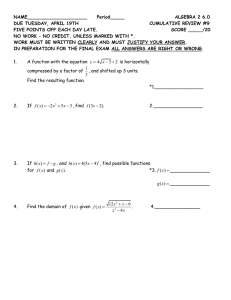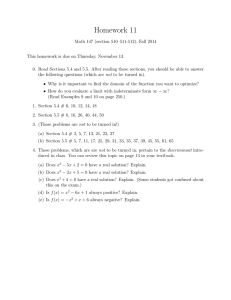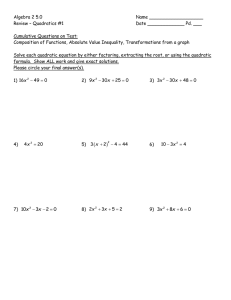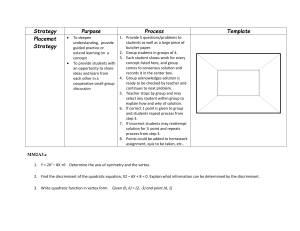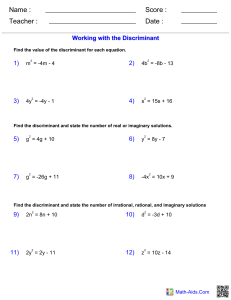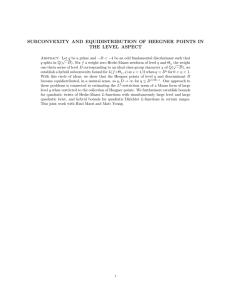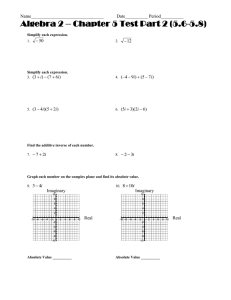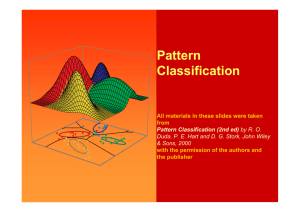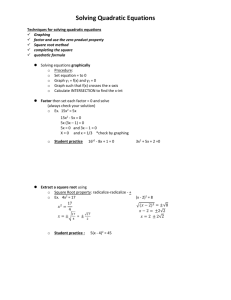Sheet 17-04
advertisement
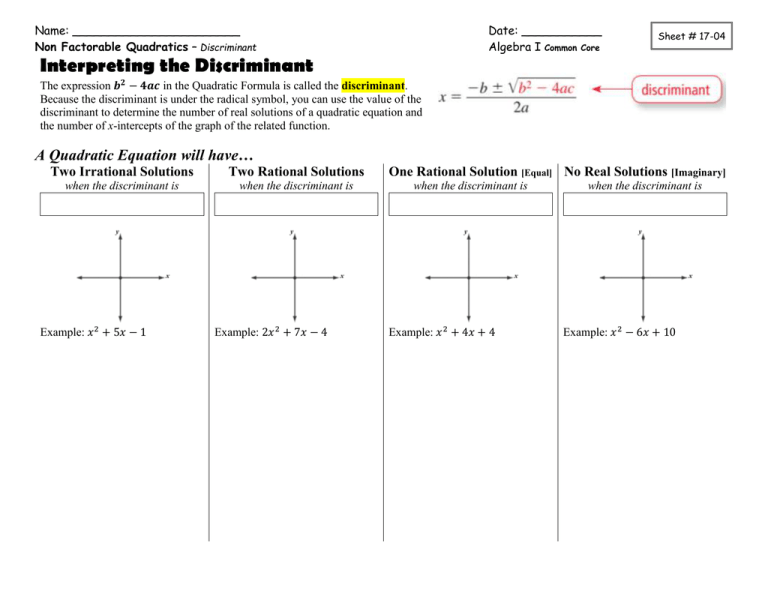
Name: _______________________ Non Factorable Quadratics – Discriminant Date: ___________ Algebra I Common Core Interpreting the Discriminant Sheet # 17-04 The expression 𝒃𝟐 − 𝟒𝒂𝒄 in the Quadratic Formula is called the discriminant. Because the discriminant is under the radical symbol, you can use the value of the discriminant to determine the number of real solutions of a quadratic equation and the number of x-intercepts of the graph of the related function. A Quadratic Equation will have… Two Irrational Solutions Two Rational Solutions when the discriminant is when the discriminant is Example: 𝑥 2 + 5𝑥 − 1 Example: 2𝑥 2 + 7𝑥 − 4 One Rational Solution [Equal] No Real Solutions [Imaginary] when the discriminant is Example: 𝑥 2 + 4𝑥 + 4 when the discriminant is Example: 𝑥 2 − 6𝑥 + 10 1 Match each discriminant in the chart with the appropriate description of the nature of the roots and the possible graph. Discriminant b 2 4ac Nature of the Roots Possible Graph Nature of the Roots I. Two Real and Rational Roots II. Two Real and Irrational Roots III. One Real and Rational Root. IV. No Real Solutions or Imaginary Solutions 0 25 -25 54 Graph A 2 How many real solutions does the equation 𝑥 2 − 5𝑥 − 3 have? Justify your answer. Graph B 3 Graph C How many real solutions does the equation 4𝑥 2 + 2𝑥 + 3 have? Justify your answer. Graph D 4 How many real solutions does the equation 4𝑥 2 + 4𝑥 + 1 have? Justify your answer.
